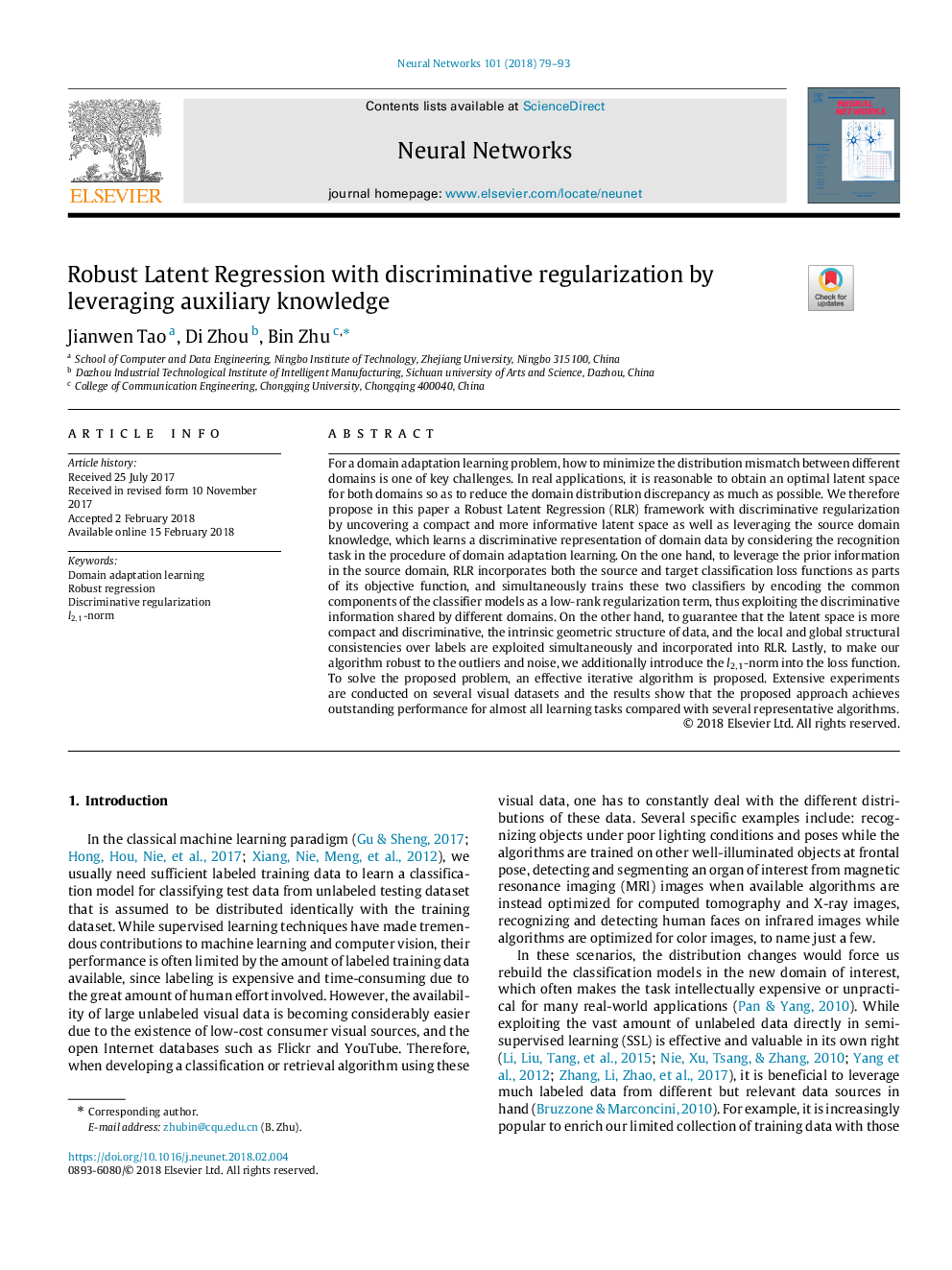| Article ID | Journal | Published Year | Pages | File Type |
|---|---|---|---|---|
| 6863014 | Neural Networks | 2018 | 15 Pages |
Abstract
For a domain adaptation learning problem, how to minimize the distribution mismatch between different domains is one of key challenges. In real applications, it is reasonable to obtain an optimal latent space for both domains so as to reduce the domain distribution discrepancy as much as possible. We therefore propose in this paper a Robust Latent Regression (RLR) framework with discriminative regularization by uncovering a compact and more informative latent space as well as leveraging the source domain knowledge, which learns a discriminative representation of domain data by considering the recognition task in the procedure of domain adaptation learning. On the one hand, to leverage the prior information in the source domain, RLR incorporates both the source and target classification loss functions as parts of its objective function, and simultaneously trains these two classifiers by encoding the common components of the classifier models as a low-rank regularization term, thus exploiting the discriminative information shared by different domains. On the other hand, to guarantee that the latent space is more compact and discriminative, the intrinsic geometric structure of data, and the local and global structural consistencies over labels are exploited simultaneously and incorporated into RLR. Lastly, to make our algorithm robust to the outliers and noise, we additionally introduce the l2,1-norm into the loss function. To solve the proposed problem, an effective iterative algorithm is proposed. Extensive experiments are conducted on several visual datasets and the results show that the proposed approach achieves outstanding performance for almost all learning tasks compared with several representative algorithms.
Keywords
Related Topics
Physical Sciences and Engineering
Computer Science
Artificial Intelligence
Authors
Jianwen Tao, Di Zhou, Bin Zhu,
